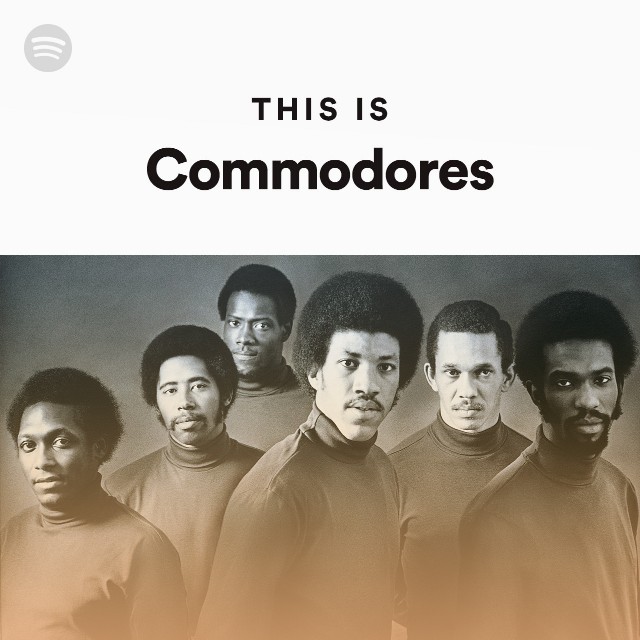

“Still” isn’t a terribly memorable song in the first place. But it also works against the song, making it fade even further into the wallpaper. This is a song about the death of passion, and maybe Richie would betray his lyrics if he delivered that ending with too much brio. When Richie sounds like he should be building up to a grand, climactic note, he instead delivers that final word - “I do love you… still” - in a defeated half-whisper. And yet the song seems to work against itself, holding back from going the total-bombast route. There’s a harp somewhere in there, and I’m pretty sure there’s a flugelhorn, too. Richie keeps things as vague and generic as possible: “Lost what we both had found/ You know, we let each other down/ But then most of all/ I do love you still.” The music layers on all the obvious drama, the tinkling pianos and weeping strings. You wouldn’t necessarily get the whole backstory from the song’s lyrics. They decided that marriage was not the thing for them and they were probably destroying what they had in the first place, which was friendship.” 1 Hits), Richie said, “I admired their strength. Talking to Dick Clark at the time (as quoted in Fred Bronson’s Billboard Book Of No. He’d go through a couple of divorces later in life, but he was still married to his first wife when he wrote “Still.” Instead, Richie wrote it about two friends who were splitting up. First, the group made it to #4 with the fond-farewell breakup song “ Sail On.” (It’s a 6.) Soon after, the group returned to #1 with “Still,” a song about a married couple realizing that a divorce is the only thing that can save their friendship.

But the album’s two big singles are both Richie ballads about couples sadly parting ways. Midnight Magic, the album that the Commodores released in 1979, is mostly the group’s version of disco - a smooth and refined Philly soul-inspired take on the genre. It would be the Commodores’ final #1 single. When the Commodores made their second trip to #1 with “Still,” the pieces were already falling into place for Richie’s solo career. The Commodores first hit #1 in 1977 with the Richie slow jam “ Three Times A Lady.” Two years later, they pulled it off again, topping the charts for a week with a song so wispy and contemplative that it’s left virtually no cultural footprint. It’s must’ve been weird to be one of the other Commodores - cruising on the momentum of these smash Richie ballads that were so radically different from what the band was doing most of the time, knowing that it couldn’t possibly last. Those Commodores albums bop along briskly, and then they suddenly slow down for instantly familiar, grandly gloopy Lionel Richie ballads. But despite exceptions like 1977’s “ Brick House,” most of the group’s big hits were Lionel Richie ballads. At least conceptually, the Commodores were a slick, good-time party-funk band. (It’s a 6.) Listening to the Commodores’ records from the ’70s is a bit of a trip. Richie had been a member of the Commodores since the group came together at Alabama’s Tuskegee University in 1968, and he’d been a hitmaker since “ Sweet Love,” a romantic Commodores slow-jam that Richie had written and sung, peaked at #5. When disco fell from dominance, Richie was in the perfect position to take advantage. During the disco boom times, Lionel Richie came into his own and became a gold-plated hitmaker by writing ballads not too different from those. And even during the disco era, plenty of ballads - Anne Murray’s “ You Needed Me,” Barbra Streisand and Neil Diamond’s “ You Don’t Bring Me Flowers,” Peaches & Herb’s “ Reunited” - still managed to hit huge. Soft-rock balladry had conquered the Hot 100 in the early ’70s, in the relative dead zone between psychedelia and disco. In the meantime, the middle-of-the-road ballad emerged from the depths and once again took its place atop the pop charts, as it so often does in times of uncertainty. Those sounds would eventually take hold, but it would take a while. For at least the first few years of the ’80s, the thing that came to replace disco wasn’t new wave or the blockbuster dance-pop - the things that, later, would define the decade in the popular imagination. As the ’70s turned into the ’80s and the anti-disco backlash gradually washed four-four kick-drums out of the pop charts, something had to come in and take its place. In The Number Ones, I’m reviewing every single #1 single in the history of the Billboard Hot 100, starting with the chart’s beginning, in 1958, and working my way up into the present.ĭisco left a vacuum.


 0 kommentar(er)
0 kommentar(er)
